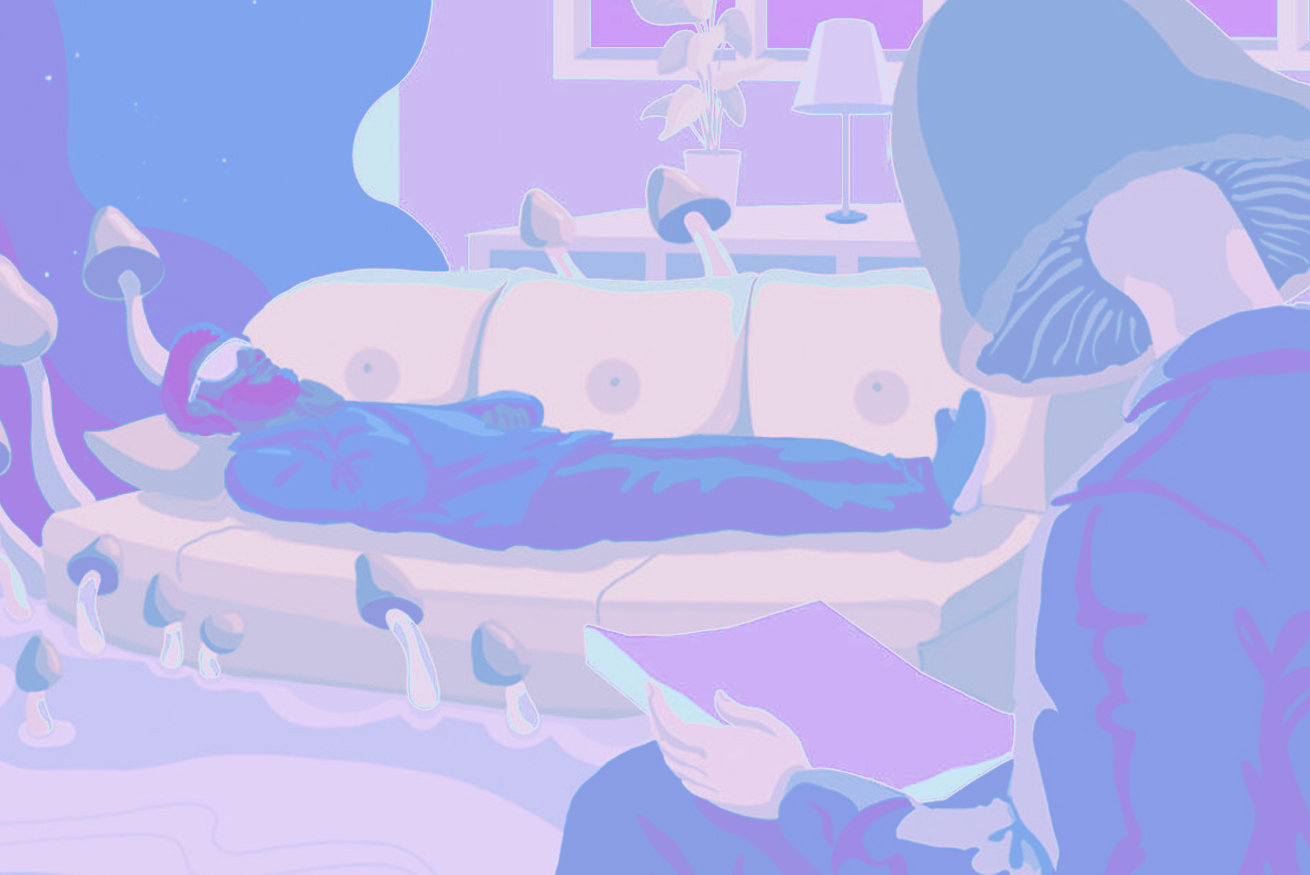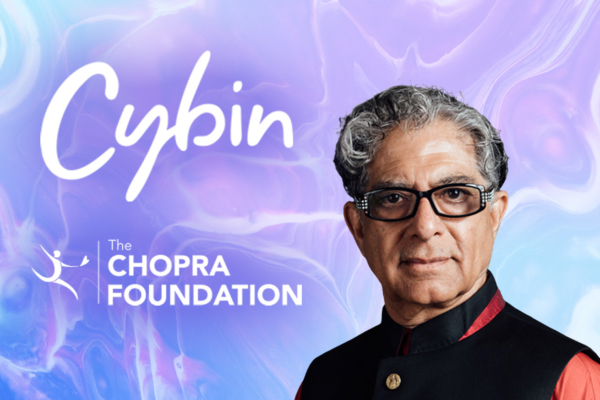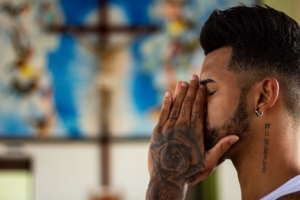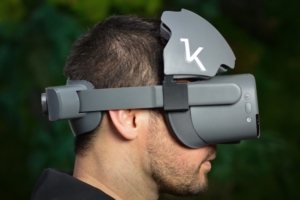
My journey into adulthood has primarily involved coming to terms with my toxic traits. A lot of people shove those bones deep into the broom closet of their psyche, where the calcium and marrow ferment and transform into monsters with green eyes and fangs. I’ve done this. I try not to do this, but our culture enables us to. Eating psilocybin mushrooms consistently over the past decade has helped me cultivate an intimate relationship with my closet monsters, it is my personal form of psychedelic therapy. And the more I let the mushrooms mediate, the monsters seem to have less control over my actions, particularly when it comes to winning arguments.
The mushrooms acquainted me with my daddy issues. My pops is a litigator. According to Cher Horowitz from the ‘90s cult classic film Clueless, those are the scariest types of lawyers, the ones who argue with their daughters for free — lucky us! Growing up with my pops was fun and often supportive — he never missed a single soccer game, took me to see the Spice Girls when I was 8-years-old, and watched Aladdin with me seven thousand times. But living with a high-strung attorney was also brutal.
I was born into this life with innate authority issues, so he and I regularly sparred. But arguing with someone whose career hinges on Olympic-level arguing and who, for a long time, was undefeated in the courtroom didn’t go well for teenage me. It was like David and Goliath — only Goliath won every time and grounded me for talking back. I was always grounded. And frustrated. I couldn’t communicate, let alone craft arguments like him. I was always on the defense, just trying to get him to see my side or a nuance of a situation.
We had many arguments like this. Sometimes I was at fault, and sometimes I wasn’t, but I was constantly on my heels and maneuvering to avoid restrictions on my life. Flashforward to adulthood, and I have a complex about always having to win arguments. I get fiery, sharp, and rude, and feel justified after harsh words pass the tongue and lip barrier into reality. Arguing for the satisfaction of being right is one of the long-lost storage bins inside my psyche’s broom closet. These behaviors mostly unspool in my romantic relationships —shocking, right?
Enter Recreational Psychedelic Therapy
A 3.5 gram trip on psilocybin mushrooms at 24 years old showed me that the bin labeled “Daddy Issues: Cantankerous Shrew” was propagating into a psychic algal bloom in my soul. I couldn’t see what was inside the bin, but simply knowing there was a glowing box of tumult helped me develop an awareness of how it was manifesting in my life.
Munching on .3 to 2 grams of psychedelic mushrooms became a part of my balanced diet by the time I was 25. I’d eat them at concerts, art shows, or with friends at home. One time I ate a gram with two friends and went to the beach to watch the sunset. Tears of stale frustration streamed down my face as soon as the sun began its descent into the ocean. I hit an emotional pressure relief valve. I realized I’ve expended gigatons of energy trying to control outcomes. Control was one of the fanged monsters inside of my “Cantankerous Shrew” box. Without mushrooms, I don’t know if I’d be able to articulate that. It would have remained an ambient feeling playing in the background of my consciousness like shitty elevator music.
This was before “microdosing” entered the zeitgeist, and psychedelic therapy became the permissible way to trip. The western psychological model — with its pastel offices and zero-gravity chairs — has effectively cast a shadow over home trips, beach trips, tripping at concerts or around a fire. Basically, what most facilitators would consider “recreational” usage. But is clinical psychedelic therapy the only way to experience profound emotional breakthroughs? My “recreational” trips almost always give me deeper insights into my oozing trash bin of baggage. Does that still qualify them as “recreational?”
The Myth of Clinical Psychedelic Therapy
“Who is to say that a person taking [mushrooms] alone or with a friend is not approaching their experience with seriousness?” says Bett Willaims, author of The Wild Kindness, A Psilocybin Oddessy. She’s a boots-on-the-ground expert in psychonautic travels, history, and literature, and has lectured at conferences such as Horizons, Mt. Tam Psilocybin Summit, and the Women and Entheogens Conference. And while her memoir is a whimsical ode to mushrooms, it also offers slicing critiques of the psychedelic renaissance and the characters propelling it, particularly in the psychedelic therapy movement. “Already you have a whole can of worms with the word ‘recreational.’ To imply that somebody doesn’t have what it takes [to consume on their own] or that someone takes psychedelics the ‘wrong way’ is a another way to say that someone else knows better so they can ultimately sell it back to you.”
I’m not saying that clinical psychedelic therapy is a scam, but taking mushrooms and marveling over the sun’s rainbow sherbet descent into tomorrow is about as therapeutic as it gets. It’s an expression of autonomous healing and cognitive sovereignty. Or, as Bett says, “it’s recreational therapy.” Why do people with PhDs get to decide that tripping with a blindfold on is better than tripping at the beach? Telling us that psychedelic therapy is the “correct” way to trip is elitist. It’s another version of psychedelic exceptionalism.
Therapy hinges on opening up to a stranger. It’s taken almost a decade of eating mushrooms regularly — from low to moderately higher doses — in an array of enjoyable settings to articulate that I have a cache of monsters in my psyche’s broom closet. I can’t afford decades of psychedelic therapy. Or the integration that we’re told is supposed to follow.
“What if,” Bett writes in her book, “We obsess over integration because we can’t deal with the fact we are taking Schedule I illegal drugs? Framing our drug use in the context of crisis and healing centers psychedelics as a medicine, rather than the crime that it also is. What if psychedelic integration is an excuse to wallow in our trip traps, rather than put them away for a while, in order to get down to the business of living? What if spending money on therapy and other healing modalities under the guise of psychedelic integration is how we make our realizations feel legitimate in a capitalist society?”
Allowing Myself to Learn from Mistakes
I recently rolled nearly 300 joints for my best friend’s wedding reception. It was an excessive amount considering no one save for the bride, me, and a handful of guests were stoners. There were significantly more joints than people attending. I put the joints in red solo cups inside of an inconspicuous cooler near a bathroom and told everyone (of age) in attendance where the joints were. By 8pm, the smell of earth skunk filled the air. I checked the cooler at 9 pm, some joints had been taken, but most were still there. In a moment of joyous cross-fade, I told one of the young preppy servers where the joints were. My boyfriend overheard me. “WHY WOULD YOU TELL HIM THAT?!”
“Why not?” I said.
“Because that guy is going to steal them,” he said.
I was overcome with visions of red. I was livid at him for saying that, despite having almost 15 years of experience as a dealer before getting into legal cannabis. He’s been robbed, held up at gunpoint, set up, and has an eerily accurate spidey sense about people and situations. I, on the other hand, have a pair of rose-colored lenses cemented to my entire face.
“HOW DARE YOU JUDGE SOMEONE LIKE THAT! That’s a reflection of YOU, and the shitty people in your life.”
Was I fiery? Yes. Rude? Extremely. Then, I called him a “fucking dick” as the cherry on top of the bitch cake. The monsters in the “Cantankerous Shrew” box were in full control. Even still, I didn’t want to be that couple fighting at a wedding — my best friend’s wedding where I was the maid of honor, mind you — so I backed off, but I was fuming.
An hour later, I went to the cooler to grab a joint. To my chagrin, all of them were gone. My heart dropped like an anvil into my stomach. The cups were even gone. My gut instantly discerned that the 120 attendees didn’t smoke all the joints. I couldn’t believe it. I closed the cooler and wandered around the party to find the server. He was gone. I don’t know what I would have said to him anyway. It’s probably better that I didn’t find him. The party was wrapping up.
I walked up to my boyfriend. “Guess what?” I said. He looked at me curiously. “The joints are gone.” He didn’t say anything. He stared at me and looked away, shaking his head. “I was wrong. Likely wrong about that guy stealing the joints and fully wrong for going off on you like that. I am so sorry.” I felt like my dad, and I felt like shit.
I won’t ever know if the young Malibu server jacked the party joints, but it’s beside the point. My level-10 reactive attack on my boyfriend was uncalled for. It didn’t have to go down that way. But admitting I’m wrong in any capacity was not in my repertoire before mushrooms entered the picture. I could have said nothing to him about the missing joints — I used to do that, I would hide the truth when I was wrong. Owning the truth and not trying to manipulate reality so I’m right (another move I picked up from living with a lawyer for 18-years) is evidence that my breakthroughs on mushrooms have altered my inner workings. Mushrooms have helped me develop the skill of reflection and contemplation. Admitting fault is the integration of those realizations; it’s the lived experience of those psychedelic experiences. And it’s allowed me to have better relationships as a result.
Pain generally comes with mea culpa, but it begets honesty. Sometimes feeling your ego ache is the most honest expression of our humanity. The monsters in my psyche’s broom closet will probably always live there, but I know them. And mushrooms have helped me confront them.





